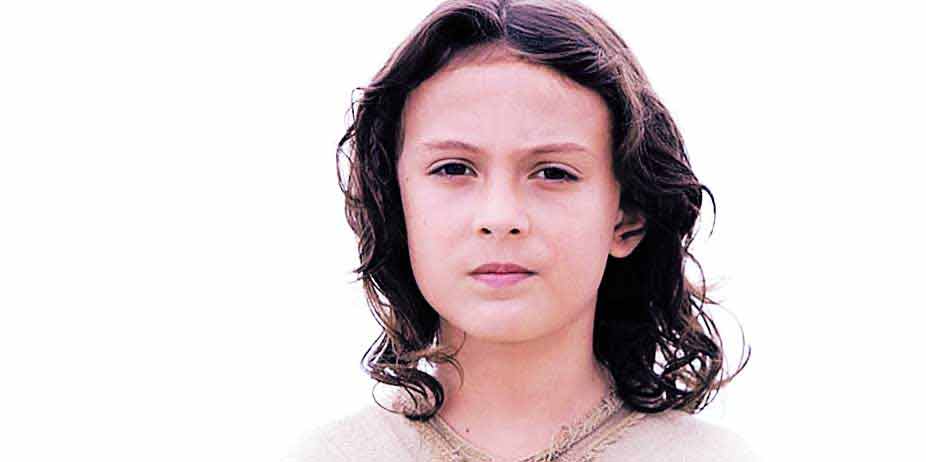The Young Messiah (2016)
Since Jesus was a great storyteller, in an attempt to cause people to think and interpret his teachings for themselves, it seems only fitting that a story would attempt to do the same thing, through exploring a pivotal time in his life as a child.
Seven year old Jesus bar Joseph (Adam Greaves-Neal) knows there's something different about him from other boys; he can sense the presence of angels, he has no interest in fighting or being cruel, he knows things he shouldn't about other people, and he can bring dead birds and bullies back to life. But neither Joseph (Vincent Walsh) nor Mary (Sara Lazzaro) are willing to answer his questions about who he is, and for what purpose God gave him these gifts. His cousin James (Finn McLeod Ireland) shares with him disquieting truths about visiting kings and great gifts; his uncle (Christian McKay) speaks of how "no important decision has been made in this family without dreams being involved" for the last eight years, and his aunt seems to believe he can heal people of illnesses.
After a dramatic incident that frightened his parents in being concerned for his safety, since rumors might reach the new young Herod that the messiah survived his father's Bethlehem massacre, Jesus encounters a centurion on the road -- Severus (Sean Bean), employed under Herod (Jonathan Bailey) for peacekeeping purposes in Judea. Indeed, rumors have reached the monarch's ears and he sees the boy as a threat, so he orders Severus to "finish what he started" at Bethlehem. Jesus seeks answers amid the violent zealot uprising in Judea, never knowing who the family can trust, but showing kindness, love, and generosity to all he meets, many of whom walk away from him impacted.
Scripture tells us nothing about Jesus' childhood, apart from their return from Alexandria and his challenging the rabbis in the temple with his immense scriptural knowledge at age twelve; for some, touching the story of Jesus or exploring ideas of what his childhood might have been like is unacceptable, but for others, this is an intense, provocative exploration into the personality of one of history's most influential individuals. Often, the only Jesus we get to see is the wise sage -- not a wise, intelligent, loving little boy, surrounded by adoring family and friends; here, we get to see a wonderful relationship between Joseph and Mary, Joseph acting as a father to his "adopted" son as the patriarch of the family, Jesus having friends among his cousins, and the intense persecution and pressure under which the people of the period lived; this Herod is the insane monarch whom Rome replaced with a Roman governor within a decade.
Everything makes sense, within the narrative and context of the storytelling, including the paranoia toward the rising messiah, a centurion dealing with the aftermath of slaughtering infants in a genocidal attack on Bethlehem, the instances when God "moves through Jesus" without his awareness (mirroring the incident with the woman who couldn't stop bleeding in scripture, touching his cloak), and bringing in the influence of the zealots, though they're never called by name. Some believers think Jesus got an automatic download on "who am I?" and knew from infancy; I don't, so the element of self-discovery enriches the story for me. The filmmakers also went out of their way to research the period, be as accurate as possible in many ways (there are still some mistakes, but nothing worth nitpicking), and be respectful to both Protestants and Catholics (in this version of the story, James is a cousin instead of a brother; because Protestants and Catholics differ in whether he was older or younger than Jesus).
The story's pacing is a little slow at the start, but momentum builds and the intensity holds even though we know Jesus will survive the centurion's search for him -- in part, because we don't know what happens to the people around him, including his father. Including him as part of a family unit, surrounding him with loving, memorable people (his uncle is particularly enjoyable), and giving them space to interact makes Jesus more "real" than any other production I've ever seen. My only complaint is that some of the deeper nuances may go over people's heads who haven't studied the history of the period. One example, Jesus invites the slave girl who kills her rapist in self-defense to join them as a sister; in that culture, at that time, she could have been stoned for being "impure" (having "premarital sex" whether she consented or not). The production value is high; it had a small budget, but it doesn't matter, and the acting is solid.
Last year produced three Biblical-themed epics (the other two being Risen and Ben-Hur) and this one is my favorite.
Sexual Content:
A man attacks a woman and forces her out of camera focus,
intending to rape her; she stabs him to death before he can (and admits in
veiled dialogue that he's raped her before). A seductively dressed, voluptuous
woman dances before Herod and sits close to him, suggestively.
Language:
None.
Violence:
Romans crucify people (no blood, no nails; they tie them to
crosses and leave them to die) and stab people to death (quick shots, all below
camera, implied, not shown); a man is stabbed to death; a boy hits his head on a
rock and dies, after attacking two children -- then attacks Jesus after Jesus
resurrects him.
Other:
Herod employs soothsayers and witches to foretell the
future, and suffers visions of serpents.

